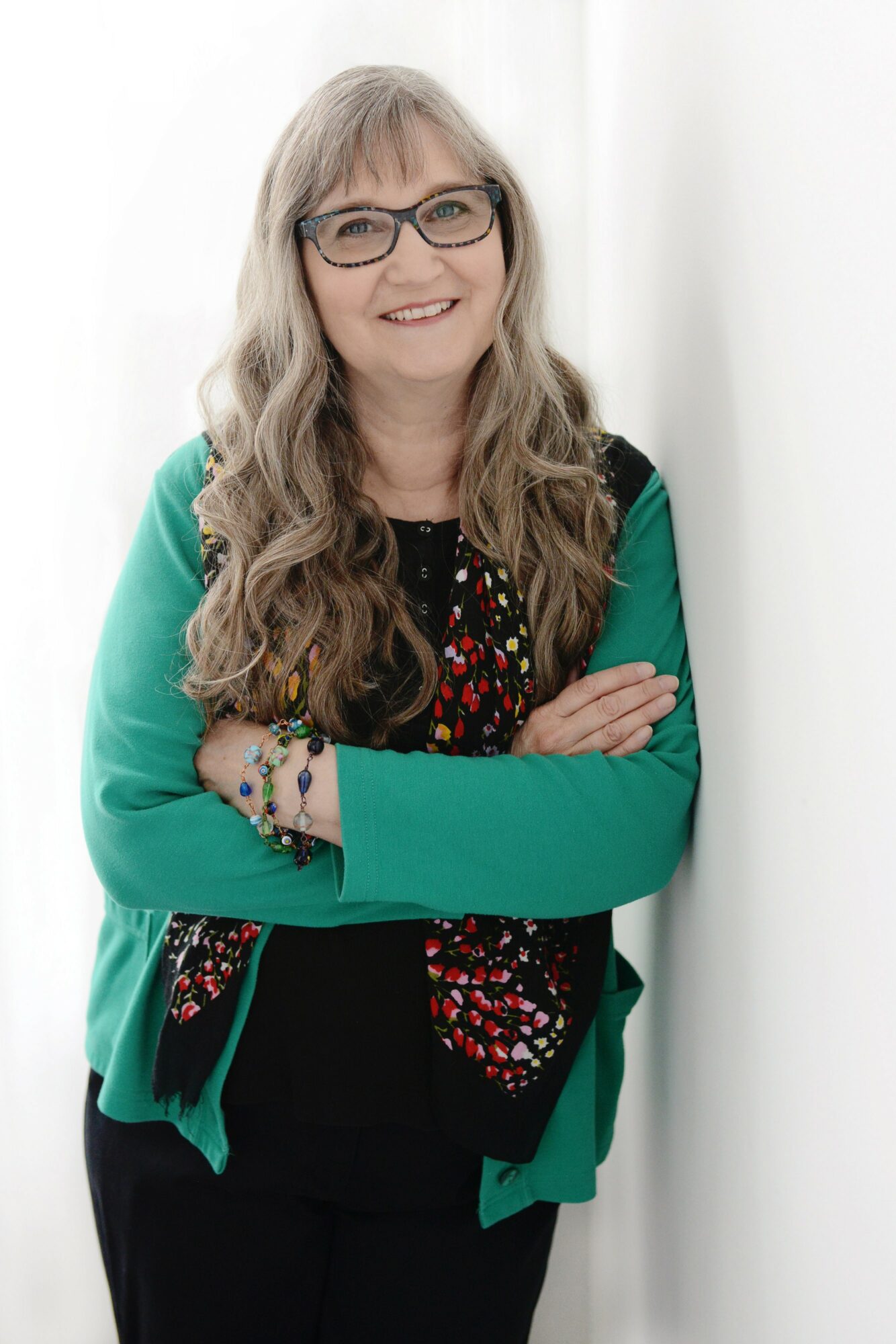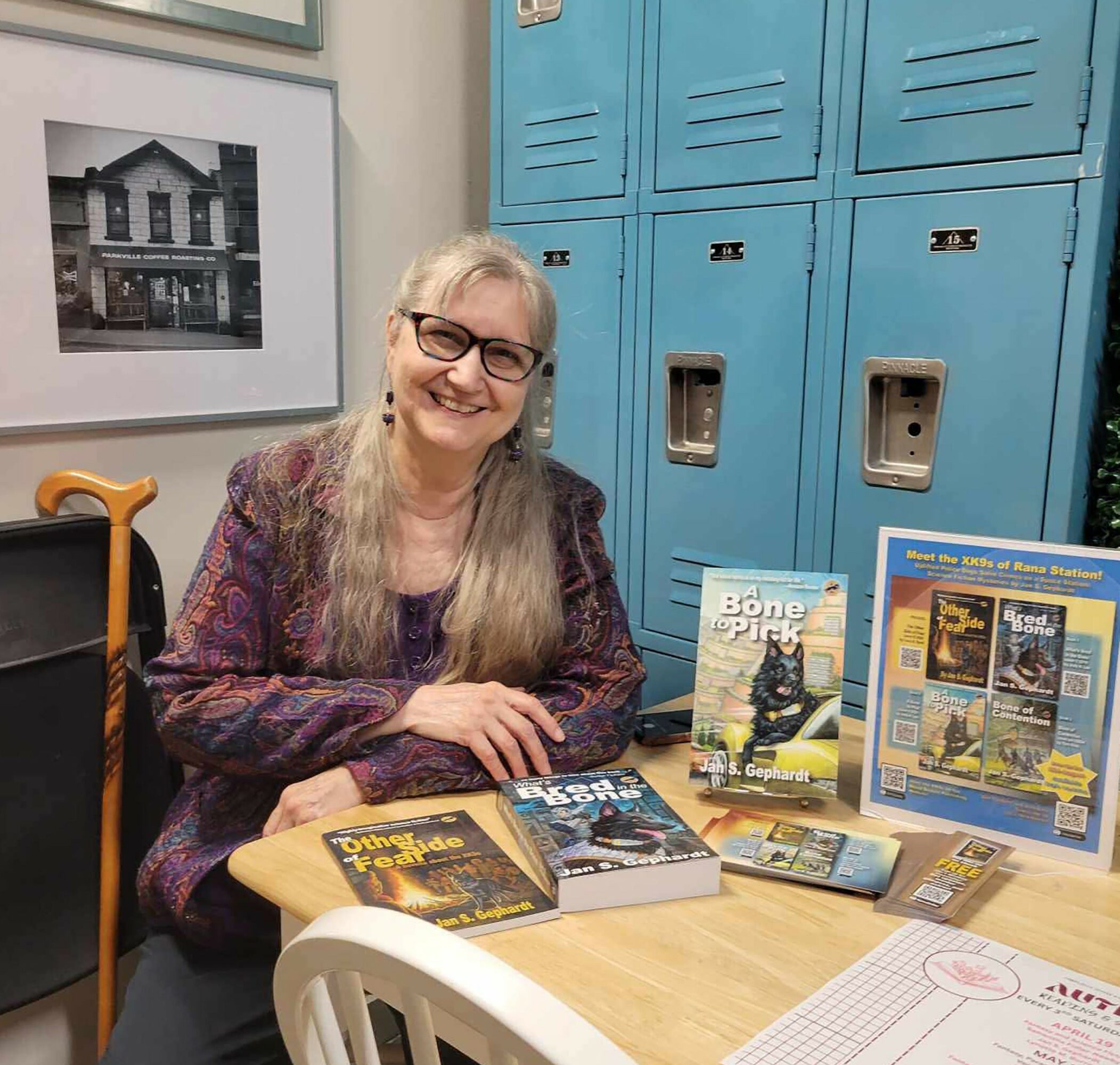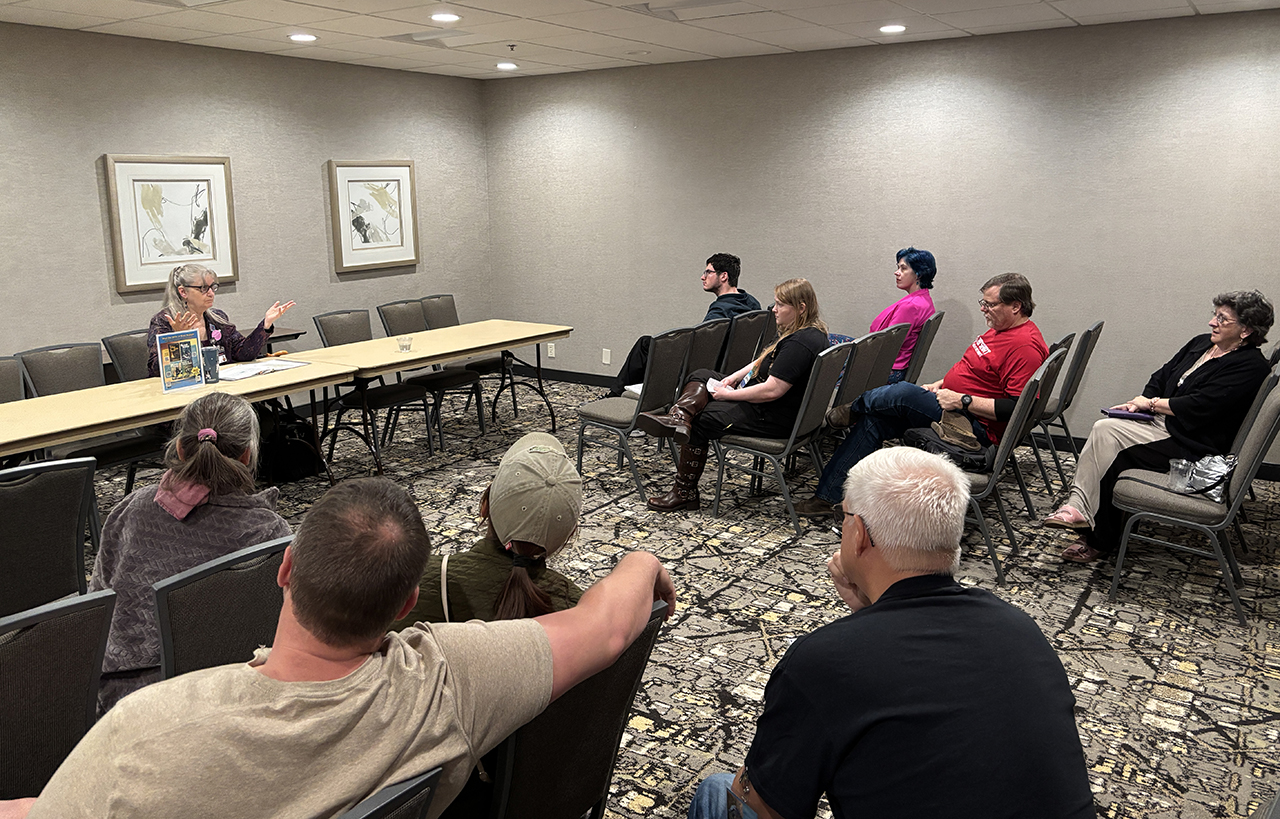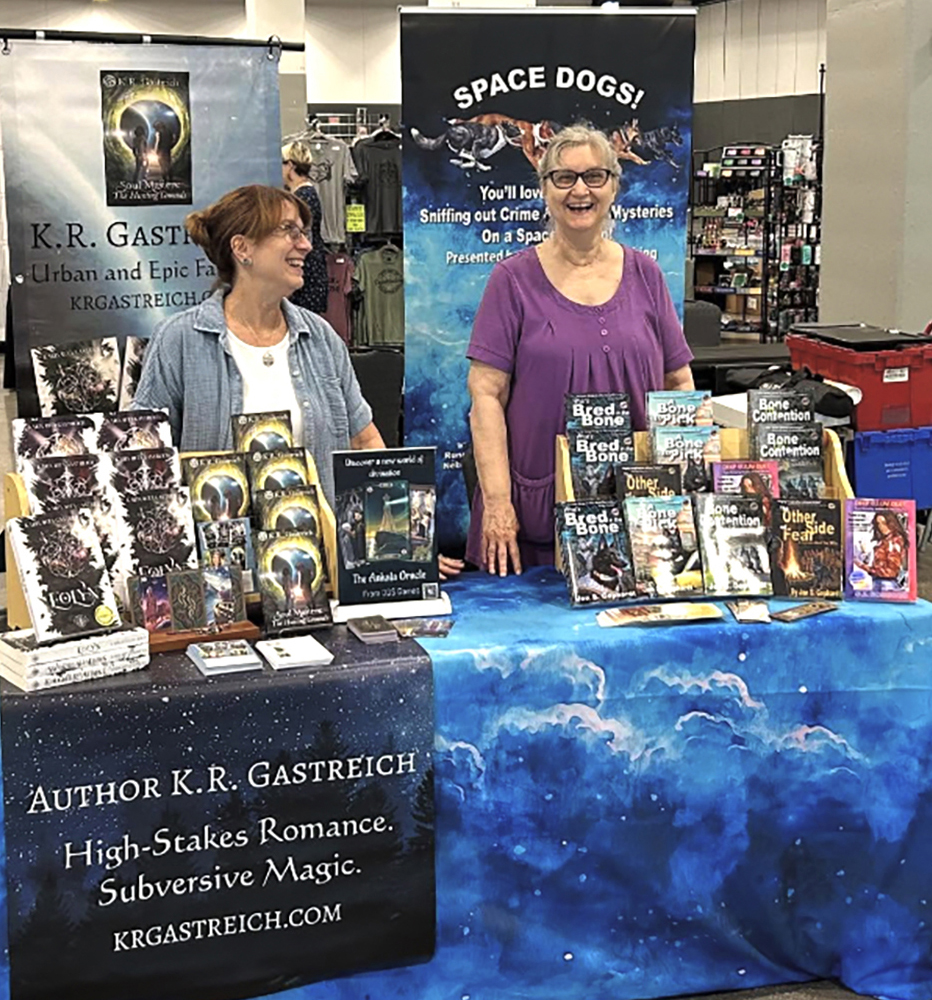

We recently had the chance to connect with Jan Gephardt and have shared our conversation below.
Jan, really appreciate you sharing your stories and insights with us. The world would have so much more understanding and empathy if we all were a bit more open about our stories and how they have helped shaped our journey and worldview. Let’s jump in with a fun one: Have you ever been glad you didn’t act fast?
Frequently. Over the years, I’ve discovered that leaping quickly on a seeming opportunity that came out of the blue is rarely wise. I’m much happier doing my best to stay aware of what’s happening, sizing up how things are developing, and then making an informed choice when I feel the time is right.
Can you briefly introduce yourself and share what makes you or your brand unique?
Hi, I’m Jan S. Gephardt, science fiction novelist, paper sculptor, and micro-press publisher. I’m the managing partner of Weird Sisters Publishing LLC (official title: Chief Cat-Herder). I also art-direct and manage all publicity.
Okay, so here’s a deep one: What did you believe about yourself as a child that you no longer believe?
That I’d have no trouble becoming well-known for my work. I have tested that hypothesis enough to know it was most definitely not valid!
What have been the defining wounds of your life—and how have you healed them?
Looking back, I’d say that the defining “wounds” have mostly been blows to my expectations. They each have come from times when I put my heart into a line of work, and it either didn’t pay off or I discovered that door after door was being closed to me. That’s a difficult thing to deal with, but I’ve come to see it as a signal that it’s time to stop, reflect, and try a new angle.
Next, maybe we can discuss some of your foundational philosophies and views? How do you differentiate between fads and real foundational shifts?
There’s a lot of buzz about “disruptive innovation,” and how such things will transfigure “everything as we know it.” I’ve lived long enough to see (and study in history) several of those leaps. They do disrupt and change sectors of our lives, and they do make lasting changes. But in many cases I think people leap to readily, either to disaster scenarios or utopian assumptions.
To sort the fads from the more substantive shifts, look beyond the flashy hype and hysteria of the moment to ask: Does this innovation have deep potential to add value to real people’s lives over time (beyond just making a few people money)? Who’s making money? Who’s getting hurt? How big will the bubble get, before it bursts?
The advent of smartphones was transformative. The advent of NFTs was not.
AI is another example. There still are very smart people who believe that “AGI” (artificial general intelligence) is right around the corner, and that the machines will revolt and take over, destroying humankind in the process. I’m still waiting to be convinced. And meanwhile, I’m alarmed by the overheated market in tech stocks. That market correction won’t be pretty!
Here’s why I have that opinion. After some startling bursts of seeming “intelligence,” the leaps have slowed in recent months. The “stochastic parrot” is beginning to run out of new material to build on, because what we call “AI” is only capable of intaking digital data. There are many other kinds of “data” that a sentient being takes in, and even then “sentience” isn’t “sapience.” That’s why so much “AI art” — be it visual, musical, or literary — tops out in quality at “mediocre.” It has no soul, no actual experience on which to base its “art.”
Certainly, it is useful for finding patterns in large data sets. That plays to its strengths. But it’s ill-suited to many of its current applications. Those things are fads, including many of the Chat GPT applications. They may make some things easier, but people who expect AI to “think for them” will never see results that rise above “mediocre.” Instead of building a million data farms to feed that fad, and destroying “Earth One” in the process, those resources would be much better used for other applications that help real people in the here and now.
The long-term question, “Does this innovation have deep potential to add value to real people’s lives over time (beyond just making a few people money)?” Seems to have a pretty clearly-developing answer, in relation to AI as it is currently being used: NO.
Okay, so let’s keep going with one more question that means a lot to us: If you knew you had 10 years left, what would you stop doing immediately?
I’m in my 70s, which means this question is potentially not hypothetical. I may WANT to live past 100 in excellent health, but the odds are not in my favor.
Most of the things I’d like to stop (cleaning out my deceased sister’s house, for instance) are not an option as things currently stand. I’m at a point in my career where I’ve moved past most of the “things I would stop doing immediately,” and I’m focusing more fully and with more joy on what I want most to be doing.
It’s easier to kick away from the things you’d love to “stop doing immediately” AFTER you’ve established an economically stable (or as economically stable as possible in this environment) base that allows you the freedom to focus on what is most meaningful to you.
Contact Info:
- Website: https://jansgephardt.com/ & https://weirdsisterspublishing.com/
- Instagram: https://www.instagram.com/jangephardt/
- Linkedin: https://www.linkedin.com/in/jan-gephardt-ba77b229/
- Facebook: https://www.facebook.com/JanSGephardtAuthor/ also https://www.facebook.com/WeirdSistersPublishingLLC/





Image Credits
My portrait is © 2017 by Colette Waters Photography and is used with permission.
The book cover artwork is © by Lucy A. Synk, Jody A. Lee, and Tom Kidd, as noted on the designs.
The photo of me at a table with blue-green lockers behind me is © 2025 by Ashley Donegan, and used with permission.
The photo of me speaking to a group of people is ©2025 by Tyrell E. Gephardt, and used with permission.
The photo of me with author K. R. Gastreich at the sales table is © 2025 by Jon Cleaves and used with permission. Please also mention Gastreich! We frequently team up on a sales table.
Did I do this right??












